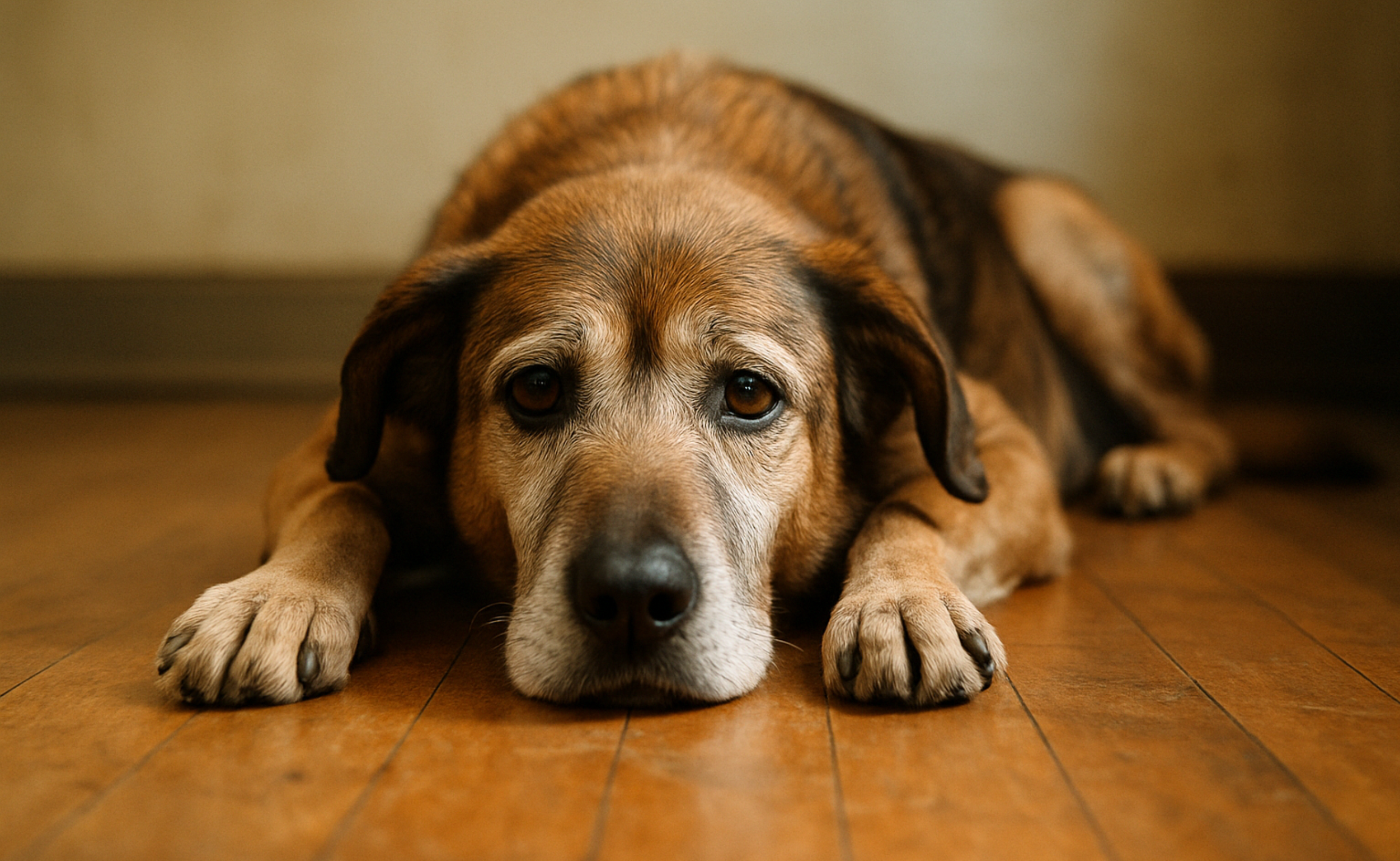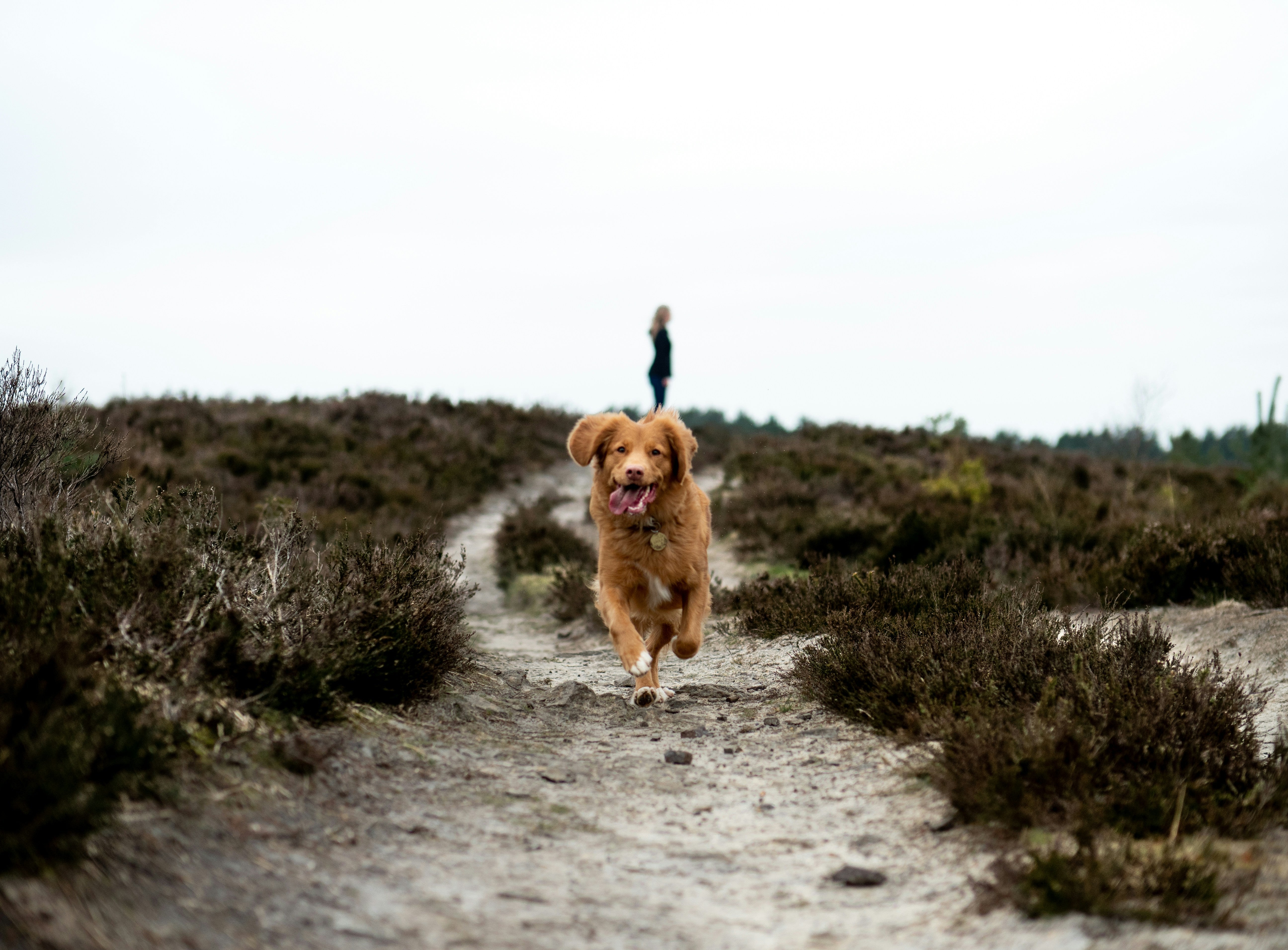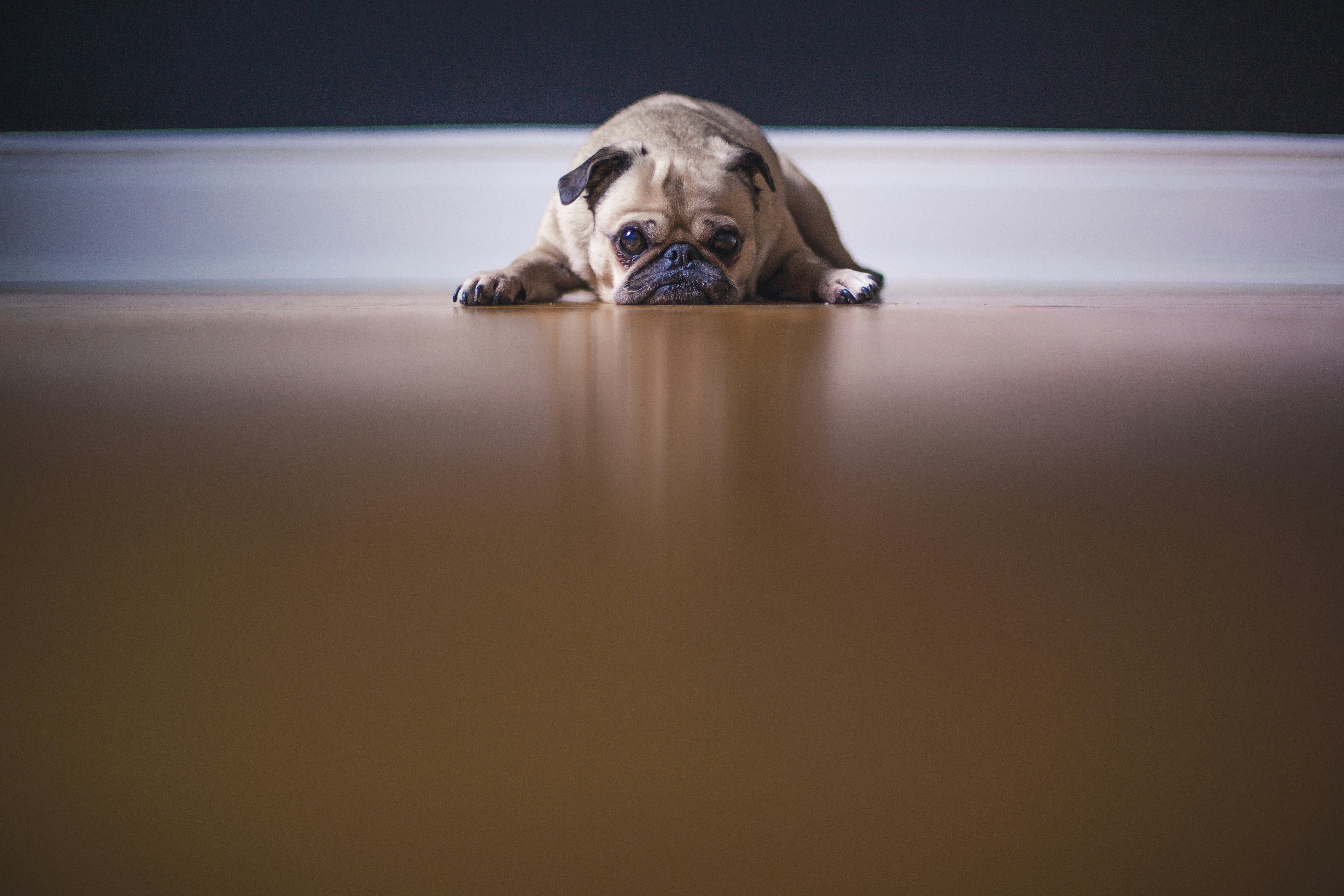Why Is My Dog Licking So Much?
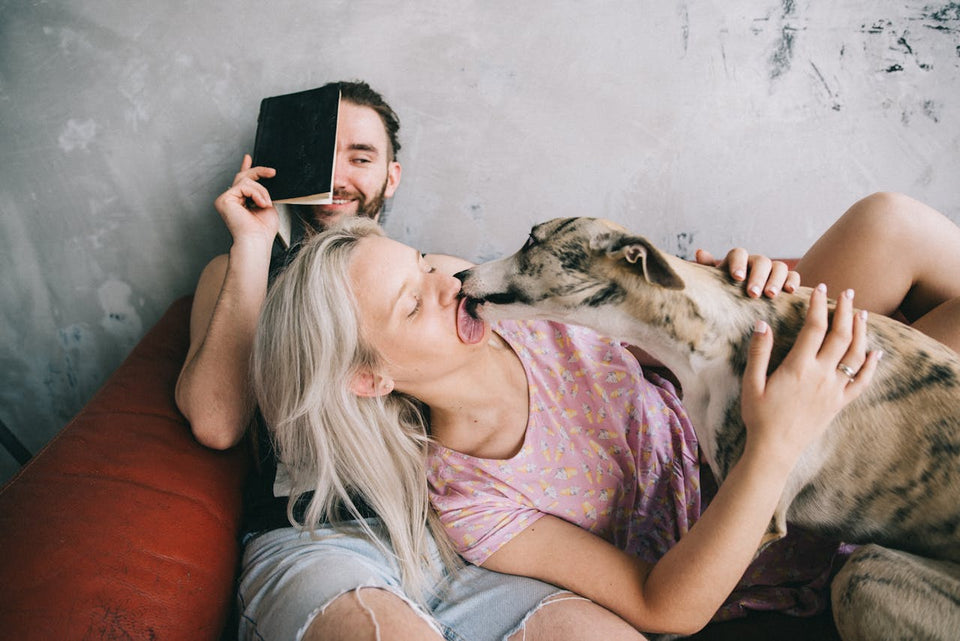
You've noticed your dog licking incessantly, and it's left you wondering, "Why is my furry friend doing this so much?" Licking can be a normal behavior for dogs, but sometimes it goes beyond their typical grooming or affectionate gestures. You might have heard various reasons for this behavior, ranging from hunger to boredom, but not all are accurate.
Understanding why your dog is licking excessively is key to ensuring their well-being and happiness. We'll dive into the different factors that could be driving this behavior, from health issues to psychological factors, and shed light on when it's time to worry. Keep reading to unravel the mystery behind your dog's licking habit and discover ways to help them.
Understanding Dog Behavior
Dogs have a variety of natural behaviors that are ingrained in their genetics. Licking is one such behavior that serves multiple purposes in their lives. From a young age, puppies are introduced to licking by their mothers as a form of cleaning and stimulation. This early exposure ingrains licking as a natural part of their behavior.
Licking is a significant mode of communication among dogs. It can signify various emotions and intentions, such as affection, submission, or even anxiety. When dogs lick each other, it's often a gesture of grooming or affection. However, if a dog excessively licks itself or objects, it might be communicating discomfort or stress.
In the canine world, licking plays a crucial role in bonding. Mother dogs lick their puppies as a part of grooming, and this act also strengthens their bond. Puppies learn to reciprocate this behavior, using licking as a means of social bonding with their pack and humans.
While licking is a normal behavior, there's a thin line between normal and excessive. Normal licking includes grooming, affectionate gestures, and exploring their environment. However, when licking becomes constant and seems to serve no apparent purpose, it might be considered excessive.
Identifying abnormal licking patterns requires observing the frequency, duration, and context of the licking. If your dog is licking the same spot repetitively, showing signs of anxiety, or if the licking disrupts their daily activities, it might be a sign of abnormal behavior.
Medical Causes of Excessive Licking
One of the common reasons dogs excessively lick is due to skin allergies or irritations. Allergic reactions can cause itchiness and discomfort, leading dogs to lick the affected areas persistently.
Oral discomfort or dental issues can also lead to excessive licking. Dogs might lick their lips or air as a way to cope with the discomfort in their mouth.
Gastrointestinal issues are another significant cause of excessive licking. A study at the University of Montreal Veterinary Teaching Hospital found that many dogs with excessive licking behaviors had underlying gastrointestinal abnormalities.
Neurological disorders can manifest as repetitive behaviors, including excessive licking. Such disorders may cause discomfort or sensations that dogs try to alleviate through licking.
Given the variety of possible medical reasons behind excessive licking, a veterinary diagnosis is crucial. Treatment plans are highly dependent on the underlying cause, whether it's an infection, allergy, or a systemic disease.
You may also like: Lethargy in Dogs: Recognizing the Signs and Seeking Care
Psychological Factors
Alt text: yorkshire terrier with his tongue out
Licking can be a coping mechanism for dogs experiencing anxiety or stress. Situations like changes in the environment, separation from owners, or past traumatic experiences can trigger this behavior.
A lack of mental and physical stimulation can lead to boredom in dogs, which they might try to alleviate through repetitive behaviors like licking. Ensuring regular exercise and mental engagement is essential in these cases.
In some instances, excessive licking can be a sign of an obsessive-compulsive disorder, especially if the behavior is hard to interrupt and immediately resumes after being stopped.
Dogs with a history of trauma or abuse might develop licking as a self-soothing behavior. Such psychological scars require careful handling and, often, professional behavioral therapy.
Providing a stable, calm environment and regular routines can help reduce stress-induced licking. Emotional support, patience, and sometimes professional help are key in managing these psychological factors.
You may also like: Why Dogs Yawn, and When to Pay Attention
Environmental Triggers
Exposure to certain household chemicals or irritants can cause discomfort, leading dogs to lick the irritated areas. This includes cleaning products, pesticides, or even certain fabrics.
Alterations in the home environment, such as moving furniture, new pets, or even new family members, can cause stress or anxiety in some dogs, manifesting as excessive licking.
Interactions with other pets, whether positive or negative, can also influence a dog's licking behavior. It can be a sign of affection, submission, or stress, depending on the nature of the interaction.
Changes in weather and seasons can affect dogs, leading to increased licking due to dry skin, allergies, or simply as a response to environmental changes.
Ensuring that your dog has a safe, comfortable space to retreat to can help alleviate stress or anxiety-induced licking. This includes a quiet area with comfortable bedding, away from the hustle and bustle of the household.
Diet and Nutrition
A dog's diet plays a vital role in maintaining the health of their skin and coat. Poor nutrition can lead to dry, itchy skin, which may cause your dog to lick excessively as they try to soothe the irritation. High-quality foods that are rich in essential fatty acids and vitamins can help promote healthier skin and a shinier coat, reducing the urge to lick.
Food allergies or sensitivities are a common cause of skin irritation in dogs. If your dog is allergic to a specific ingredient, this can lead to itchy skin and excessive licking. Identifying and eliminating allergens from your dog's diet is crucial. This may involve feeding hypoallergenic or limited ingredient diets to pinpoint the allergen.
Just like in humans, nutritional deficiencies can impact a dog's health significantly. A lack of certain nutrients, such as vitamins, minerals, and especially fatty acids, can lead to skin problems, prompting excessive licking. Ensuring a balanced diet that meets all your dog's nutritional needs is therefore essential.
A balanced diet is key to maintaining your dog’s overall health, including their skin and coat. Consult with a veterinarian to determine the most suitable diet for your dog, particularly if they are prone to allergies or skin issues.
When choosing dog food, look for options that contain high-quality protein sources, essential fatty acids, and are free from common allergens. Brands that offer grain-free or single-protein-source foods can be particularly beneficial for dogs with sensitivities.
Grooming and Care
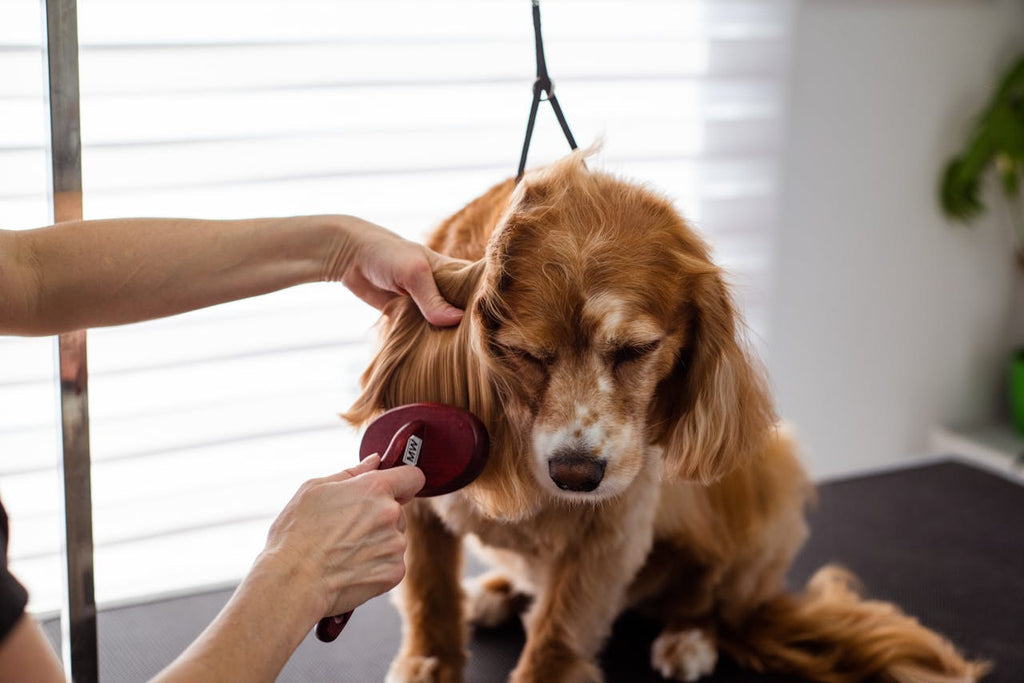
Regular grooming is essential for maintaining your dog's skin health. Brushing removes dead hair and skin cells, distributes natural oils, and can help identify any skin issues early on. A regular grooming routine can prevent skin issues that might cause your dog to lick excessively.
The grooming products you use on your dog can impact their skin health. Opt for hypoallergenic shampoos and conditioners that are free from harsh chemicals. Products with natural ingredients like oatmeal can soothe the skin and reduce irritation.
Paw.com offers a range of quality grooming supplies designed to cater to the specific needs of dogs. Their products are formulated to be gentle on the skin, helping to reduce irritation and the subsequent licking that it causes.
Long nails can cause discomfort and even pain for your dog, leading to excessive licking of their paws. Regular nail trimming is an essential aspect of grooming that can prevent this behavior.
Dental issues can also lead to excessive licking. Maintaining your dog’s dental hygiene, through regular brushing and dental treats, can prevent oral discomfort that might cause your dog to lick excessively.
Training and Behavior Modification
If your dog's licking is behavioral, training techniques can be used to redirect this habit. Offering a toy or engaging in a different activity whenever they start licking can be effective in breaking the cycle.
Positive reinforcement is key in training dogs to stop undesirable behaviors like excessive licking. Rewarding your dog for stopping licking or engaging in alternative behaviors can be highly effective.
In some cases, enlisting the help of a professional dog trainer can be beneficial. They can offer tailored strategies and support to address your dog’s specific licking behavior.
Consistent routines and clear boundaries are essential in training. Dogs thrive on routine, and a structured environment can reduce anxiety-related licking.
Consistency is crucial in any form of dog training. Regular practice and reinforcement of desired behaviors are key to successfully modifying your dog's licking habits.
Providing Comfort and Support
A comfortable resting place is important for your dog’s mental and physical well-being. Dogs are less likely to engage in stress-related behaviors like excessive licking when they feel comfortable and secure in their environment.
Orthopedic dog beds from Paw.com provide the ideal blend of comfort and support, especially for older dogs or those with joint issues. These beds can help minimize discomfort that might lead to licking.
Boredom can lead to a variety of behavioral issues, including excessive licking. Providing interactive toys and engaging in regular playtime can keep your dog mentally stimulated and reduce the likelihood of such behaviors.
Regular exercise is crucial for maintaining your dog’s physical and mental health. Adequate physical activity can reduce anxiety and stress, thus decreasing the likelihood of excessive licking.
A strong bond between you and your dog is fundamental. Dogs who feel securely attached to their owners are less likely to exhibit stress-related behaviors, including excessive licking. Spending quality time with your dog, understanding their needs, and providing love and care are essential aspects of this bond.
Ensuring Your Dog's Well-Being
In understanding why dogs lick excessively, we've delved into various aspects ranging from diet and nutrition to behavioral factors. It's clear that a holistic approach is vital in addressing this issue. Remember, your dog's licking can be a sign of underlying health conditions, nutritional needs, or emotional states. It's essential to observe and understand the cues your dog is giving. Seeking professional advice from a veterinarian or a dog behaviorist can provide invaluable insights and tailor-made solutions.
Products from Paw.com play a crucial role in ensuring the comfort and health of your furry friend, especially when it comes to grooming and rest. Your dog's health and happiness lie in the small details of daily care, understanding, and the love you provide. Keeping these elements in balance is the key to a joyful, lick-free life for your canine companion.
Share this article
written by
